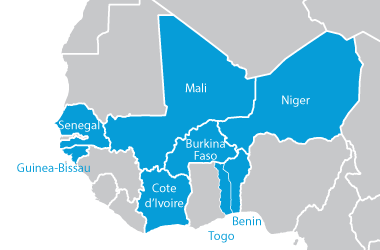Background
The service sector is vital for economic transformation and accounts for a substantial share of employment, yet many countries continue to face significant data gaps—particularly in partner country breakdowns and modes of supply—that hinder evidence-based policymaking, negotiations, and development strategies. In response, the TiSSTAT Programme represents a coordinated effort by UNCTAD to pool expertise and support participating national statistical offices. By adopting an enterprise and establishment survey approach and integrating complementary data sources, TiSSTAT offers a complete and practical solution for compiling reliable and detailed trade in services statistics. This collaborative initiative enables statistical offices to enhance their capacity and produce high-quality, internationally comparable data, thereby strengthening the foundation for informed trade policies and sustainable development.
The effort complements UNCTAD’s role, in collaboration with the World Trade Organization (WTO), to collect and disseminate data on global trade in services.
TiSSTAT was developed in collaboration with and support by the Commission of the West African Economic and Monetary Union (UEMOA), the Central Bank of West African States (BCEAO) and the member States. The national statistical offices of the eight UEMOA countries are at the forefront of the implementation of TiSSTAT.
8 African countries at the forefront of implementing TiSSTAT.

TiSSTAT Playground
As part of its phased implementation strategy, UNCTAD has developed the TiSSTAT Playground and structured online training sessions to strengthen the capacity of countries before full-scale implementation and software deployment. This approach allows countries to familiarize themselves with the system in a controlled environment, building confidence and ensuring they are well-prepared for the transition to the full version of TiSSTAT. Introductions to the playground are arranged twice per year, and are designed to gather user feedback, refine the system based on real-world experiences, and ensure a more effective and tailored rollout.
By allowing countries to explore TiSSTAT in advance, UNCTAD ensures a more effective and customized implementation strategy, maximizing the impact of the full-scale deployment. This proactive approach reflects UNCTAD’s commitment to capacity building, ensuring that national statistical systems are well-prepared for the digital transformation of trade in services statistics.
Description of the system
TiSSTAT is a modular system that supports every phase of the survey process—from sampling to reporting—while offering flexibility for institutions to implement the entire solution or select individual components. Its interactive electronic questionnaire minimizes respondent burden and ensures relevance by enabling detailed trade breakdowns by partner country and, where applicable, by mode of supply, covering all service categories of the Extended Balance of Payments Services Classification (EBOPS) except travel. The system facilitates secure, multi-user collaboration, ensuring efficient data management and streamlined workflows. Automated data validation, imputation methods for missing values, and optimized data storage enhance accuracy and consistency, while automated logging, data versioning, and transparent methodology tracking guarantee reproducibility. Together, these features make TiSSTAT a practical and comprehensive tool for compiling high-quality trade in services statistics.
Overview of the compilation steps available in TiSSTAT
Capacity development offering
The TiSSTAT system is more than an application. A standardized questionnaire has been developed for TiSSTAT aligned with EBOPS. In TiSSTAT, this questionnaire comes with applicable data validation rules and imputation methods. The associated methodology also covers sampling techniques and methods for estimating population values from the sample. UNCTAD offers training in the full implementation of this system.
The training for implementing TiSSTAT is well complemented by the comprehensive training in trade in services statistics offered by UNCTAD via the TrainForTrade programme.

Seeking funding and partners
UNCTAD seeks to forge partnerships that will expand the reach of the TiSSTAT system to an increasing number of countries. By bringing more countries on board, not only do we drive broader use of the platform, but we also unlock the value of pooled experiences and shared costs. With each additional participating country, the cost burden for any individual country is reduced, making the system increasingly accessible. At the same time, the overall implementation cost will be influenced by the level of customization required to tailor the system to national data collection needs, ensuring that every country receives a solution aligned with its unique requirements.
If you would like to know more about TiSSTAT, please contact: tisstat@un.org or nour.barnat@unctad.org.
Related
Events & meetings
Documents
25 Sep 2025
TiSSTAT: An information system for compiling trade in services statistics through enterprise surveys
English30 Sep 2020




